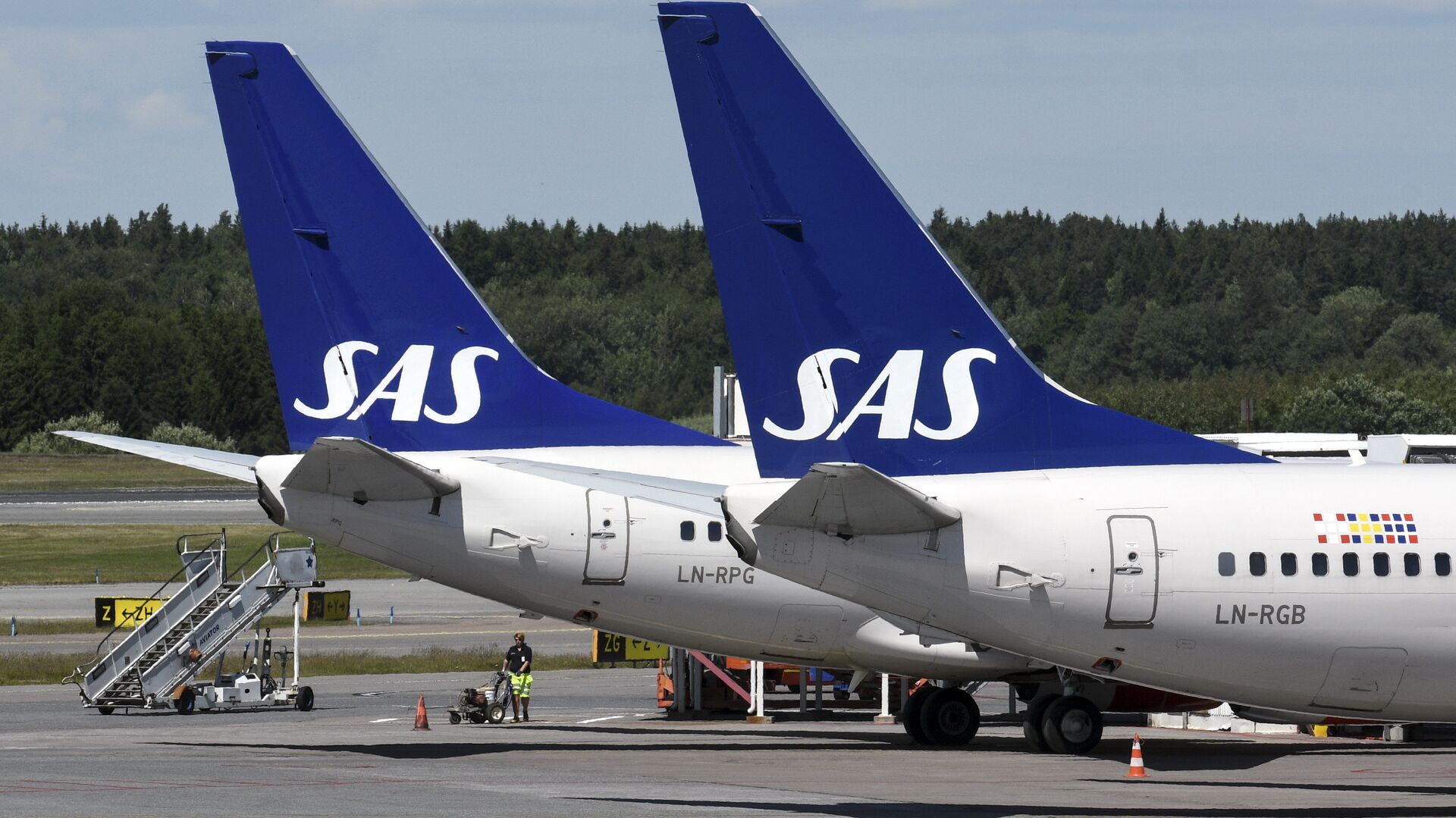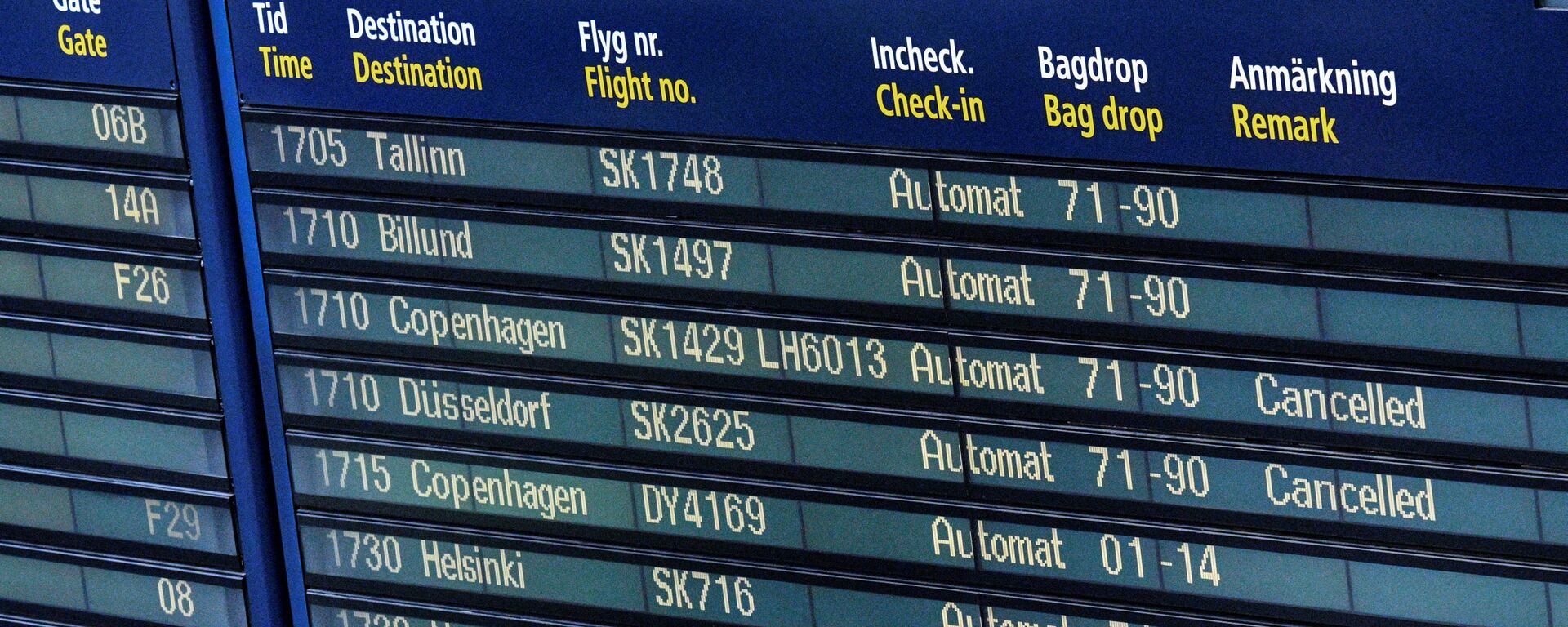Sweden to Fuel Aircraft With Carbon Dioxide Recycled in 'Reverse Photosynthesis'

© AFP 2023 / Johan NILSSON / TT News Agency
Subscribe
Since air traffic is seen as one of the major culprits behind climate change and a huge net contributor of carbon dioxide emissions, environmental pressure and ambitious political guidelines have spurred airlines and aircraft manufacturers into experimenting with "greener" fuels.
A new large-scale project for climate-friendly aviation fuel is planned for launch in the Swedish town of Forsmark in Uppland County north of Stockholm.
Carbon dioxide will be captured from a local combined heat-and-power plant in Uppsala and mixed with hydrogen gas, produced from fossil-free electricity. The arising ethanol will subsequently be converted into aviation fuel.
The parties involved – airline SAS, energy giants Vattenfall and Shell, and carbon recycling company Lanzatech – have described the project as very exciting and promising.
The parties involved – airline SAS, energy giants Vattenfall and Shell, and carbon recycling company Lanzatech – have described the project as very exciting and promising.
"It's like mimicking photosynthesis, but a bit the other way around", Vattenfall strategy manager Andreas Regnell told national broadcaster SVT. "If we are to continue to fly, and if we think that biofuel will not be enough, then it is here where we end up".
The ambition is to launch the plant around 2026-27. The ultimate goal is to be able to produce enough fuel to cover 25 percent of all SAS traffic in the Nordic region starting from 2030.
"No investment decisions have been made yet, but it looks like it can work really well, and that it will be competitive", SAS head of sustainability Lars Andersen Resare told SVT.
"No investment decisions have been made yet, but it looks like it can work really well, and that it will be competitive", SAS head of sustainability Lars Andersen Resare told SVT.
Currently, there are two potential hurdles facing the project. The first is the element of uncertainty about how the authorities will classify the new fuel, as carbon dioxide is still emitted, even if the greenhouse gases are recycled.
"The regulatory issue is an important piece of the puzzle", Vattenfall's Andreas Regnell admitted.
The other is that the plant where the hydrogen is to be produced will consume a lot of electricity of its own, around 250 MW. This is about a third as much as the much-touted fossil-free steel project Hybrit will consume. According to Regnell, though, this is a rather positive promise of high demand for electricity for those who would like to invest in wind power.
Air traffic is seen as one of the major culprits behind climate change and a huge net contributor of carbon dioxide emissions – of which private jet-flying top politicians and celebrities never cease to remind the general population. Incidentally, it was in Sweden where the anti-flying movement coined the word "flygskam" or "flight shame" in order to discourage people from flying to lower their carbon emissions. Climate activist Greta Thunberg, who goes to great lengths to avoid flying, including photo ops in trains and sailing yachts, is arguably its most well-known champion.
Under pressure from environmentalists and eco-friendly politicians, in recent years, airlines and aircraft manufacturers have begun experimenting with "greener" fuels, including biofuels.

